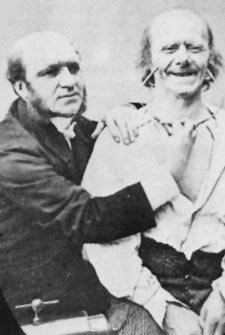Everyone of us almost everyday faces conflicts. Some of them are bigger, some are smaller. The reaction to them is different as well. Some people like to conflict, some hate that and afterwards feel frustrated.
Conflicts are determined by specific signs of a body: raised voice, the heart starts to beat harder, we tremble from anger, becoming more and more pale or reddish. Sometimes we try not to show that to our opponent, in order to appear weak.
There are two basic types of conflicts : inner conflicts and outer conflicts. The first ones consist of many conflicts that are related to individual itself, for example: emotional, interpersonal, intrapersonal conflicts and the other side of conflicts is among relationships with other individuals: group, community, international conflicts. The first time, when a person starts to feel inner conflicts is adolescence - youngsters feel too many different opinions inside and tries to run away from them. Then another one of the biggest conflicts appears about 30 - 40 year old, and psychologists call it "middle age crisis".
The most interesting fact is that there are thousands of conflicts, but the sources are mostly few: biological needs, different values, different opinions, interests or psychological needs, sometimes it is the lack of reservoir. For example, let’s analyse 2 conflicts:
Brother and sister are arguing for the last piece of bread (who is going to eat that);
Two countries are fighting for the same piece of earth.
In both examples, the reason is the same and obvious: the lack of reservoir.
Other types of conflicts:
One side wins, another looses. Usually people have the attitude that either I will win or he, but the winner must be anyway. People try to do anything to overcome the opponent, but sometimes there could be only ONE winner – for example, many candidates are trying to apply for the same job, so naturally, only one will be able to work.
Both sides loose. That happens even more often that we can imagine, when both sides agree to refuse their aims. It is negative, because if the conflicting sides would try they could find better solution.
Both sides win. It is the most difficult way to find a solution, but the most beneficial. For example, the family lives needily, parents are working hard, and the children only ask money for expensive goods. The parents make a fund, where put not too much, but extra money for children and now they have to save the money, but sooner or later they will be able to buy a good they want. So both sides remain happy.
Psychologists suggest 7 steps plan to solve the conflicts:
Find out what you want personally – if you are not sure about that, the people around you are going to be more confused.
Tell your wishes to the other side – for this point, time and place is very important. If a person is already angry and you will tell him/her what you want, that can light a conflict.
Listen to the wishes of the other side
Try to find possible solutions – it is very important that both sides would tell their suggestions.
Evaluate possible solutions and choose the best one.
Materialize the solution
Still focus on that if the solution is really good – even if you chose a really good solution, they can not last forever.
To the conclusion, people should less focus on the conflicts, but better how to have better and better relationships among everybody.
Sunday, April 1, 2007
Subscribe to:
Post Comments (Atom)

1 comment:
Very interesting writing.There are many information.NIce job! There just one thing I missed pictures :(
Post a Comment